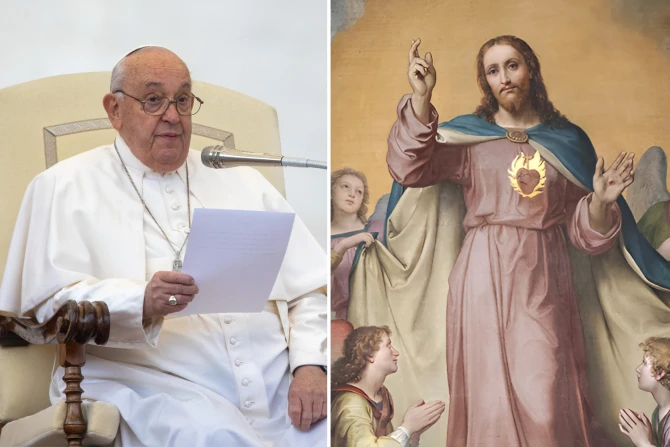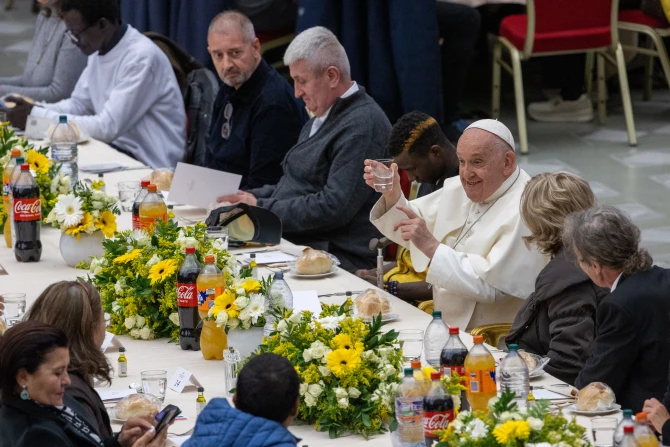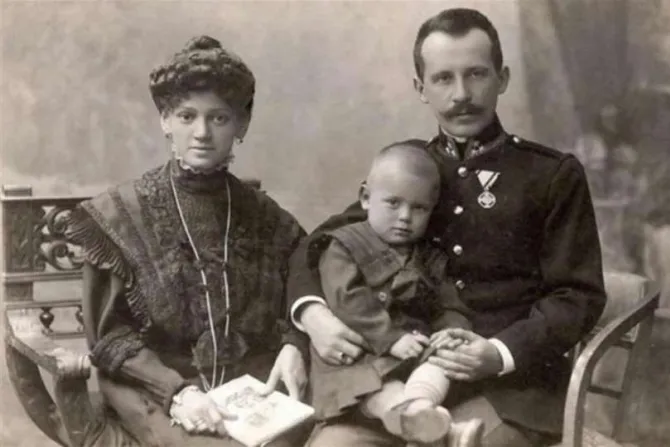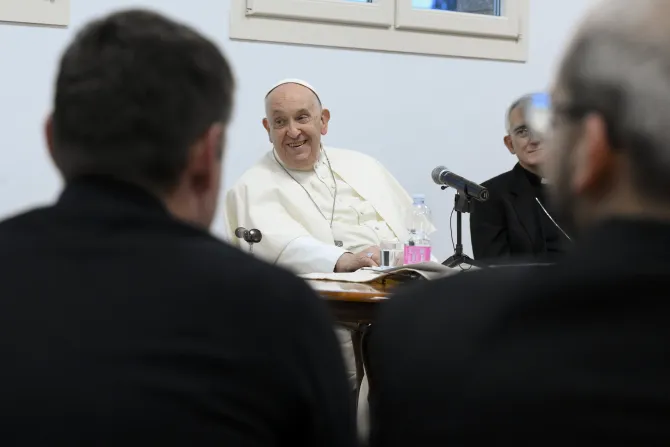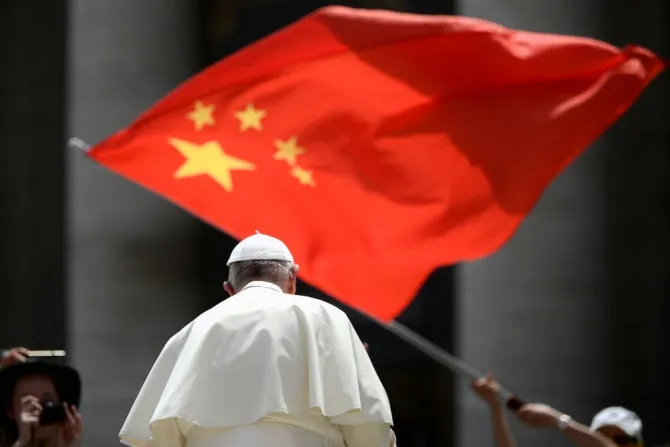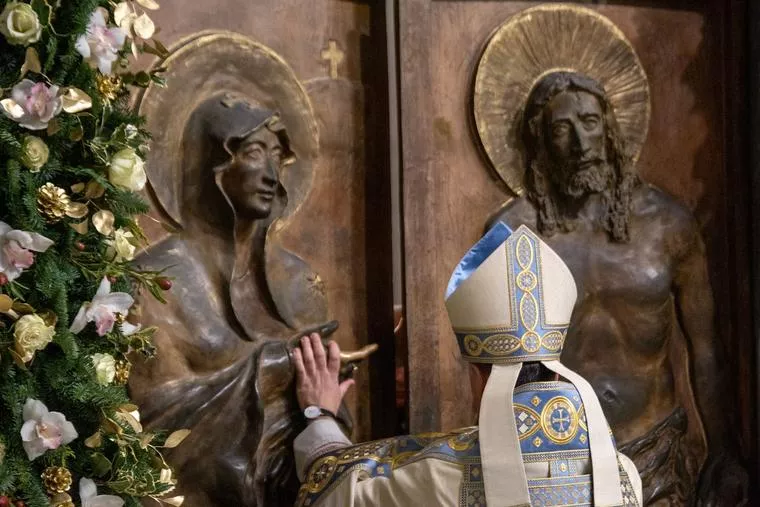Pope Francis released a new encyclical Dilexit Nos (“He Loved Us”) on Thursday, calling for a renewed understanding of devotion to the Sacred Heart in the modern era and its many pressing challenges.
In the document, the pope argues that the spirituality of the Sacred Heart offers a vital response to what he calls a “liquid society” dominated by technology and consumerism.
Pope Francis writes: “Living as we do in an age of superficiality, rushing frenetically from one thing to another without really knowing why, and ending up as insatiable consumers and slaves to the mechanisms of a market unconcerned about the deeper meaning of our lives, all of us need to rediscover the importance of the heart.”
Subtitled “Letter on the Human and Divine Love of the Heart of Jesus Christ,” the document is the first papal encyclical dedicated entirely to the Sacred Heart since Pope Pius XII’s Haurietis Aquas in 1956.
Throughout the document, Francis weaves together traditional elements of Sacred Heart devotion with contemporary concerns, presenting Christ’s heart as the principle unifying reality in a fragmented world.
The document’s release fulfills an announcement made by the pope in June, when he noted that meditating on the Lord’s love can “illuminate the path of ecclesial renewal and say something meaningful to a world that seems to have lost its heart.”
At a press conference presenting the document on Thursday, Italian Archbishop Bruno Forte said the encyclical expresses “in a profound way the heart and the inspiring motive of the whole ministry and magisterium of Pope Francis.”
The theologian added that in his opinion, the text is “the key to understanding this pope’s magisterium.”
Forte, who is a member of the Dicastery for the Doctrine of the Faith, presented the encyclical together with Sister Antonella Fraccaro, superior general of the Disciples of the Gospel (Discepole del Vangelo).
From Scripture to AI: Inside the Pope’s Vision
The approximately 30,000-word encyclical draws extensively from Scripture and tradition, featuring insights from St. Thérèse of Lisieux, St. Francis de Sales, and St. Charles de Foucauld.
Released as the Synod on Synodality is concluding its month-long deliberations in Rome, the document emphasizes both personal spirituality and communal missionary commitment.
Francis develops his vision across five chapters, beginning with a philosophical and theological exploration of “the importance of the heart” before moving through reflections on Christ’s actions and words of love, the theological meaning of Sacred Heart devotion, its spiritual dynamics and social implications.
Pope Francis Addresses Tech Age
“The algorithms operating in the digital world show that our thoughts and will are much more ‘uniform’ than we had previously thought,” Francis writes, arguing that technological solutions alone cannot address the deeper needs of the human heart.
He emphasizes that the meaning of the word “heart” is not sufficiently captured by biology, psychology, anthropology or any other science.
“In this age of artificial intelligence, we cannot forget that poetry and love are necessary to save our humanity. No algorithm will ever be able to capture, for example, the nostalgia that all of us feel, whatever our age, and wherever we live,” Francis writes.
The pope emphasizes that devotion to the Sacred Heart is not merely a private spiritual practice but has profound implications for social life and human relationships.
“The world can change, beginning with the heart,” he writes, connecting individual transformation with broader social renewal.
Sacred Heart Teaching from Pius XII to Francis
The encyclical builds on centuries of Catholic devotion to the Sacred Heart while offering fresh insights for modern challenges. Francis cites extensively from previous papal teachings, particularly from St. John Paul II.
“Devotion to the Sacred Heart, as it developed in Europe two centuries ago, under the impulse of the mystical experiences of Saint Margaret Mary Alacoque, was a response to Jansenist rigor, which ended up disregarding God’s infinite mercy,” the late pope writes.
“The men and women of the third millennium need the heart of Christ in order to know God and to know themselves; they need it to build the civilization of love.”
Heidegger, goosebumps and the heart
In a significant theological and philosophical development, the encyclical engages deeply with modern thought, particularly through its discussion of German philosopher Martin Heidegger’s understanding of human emotion and understanding.
The pope cites Heidegger’s insight that “philosophy does not begin with a pure concept or certainty but with a shock,” as “without deep emotion, thought cannot begin. The first mental image would thus be goosebumps.”
For Francis, this is where the heart comes in as it “listens in a non-metaphoric way to ‘the silent voice’ of being, allowing itself to be tempered and determined by it.”
‘A New Civilization of Love’: The Path Forward
As the heart can “unify and harmonizing our personal history, which may seem hopelessly fragmented,” the pope writes, it “is the place where everything can make sense.”
“The Gospel tells us this in speaking of Our Lady, who saw things with the heart.”
The document calls for a renewal of traditional Sacred Heart practices on this understanding while emphasizing their contemporary relevance.
“Our communities will succeed in uniting and reconciling differing minds and wills, so that the Spirit can guide us in unity as brothers and sisters. Reconciliation and peace are also born of the heart. The heart of Christ is ‘ecstasy,’ openness, gift and encounter.”
The pope concludes by connecting this spiritual vision to the Church’s broader mission in the modern world, calling for what he — following St. John Paul II — terms a “civilization of love” built on the foundation of Christ’s love.
This vision also connects directly to previous social encyclicals by Pope Francis, Laudato Si’ and Fratelli Tutti, presenting Christ’s love as the foundation for addressing and solving contemporary challenges.
This article was originally published on Catholic News Agency.

